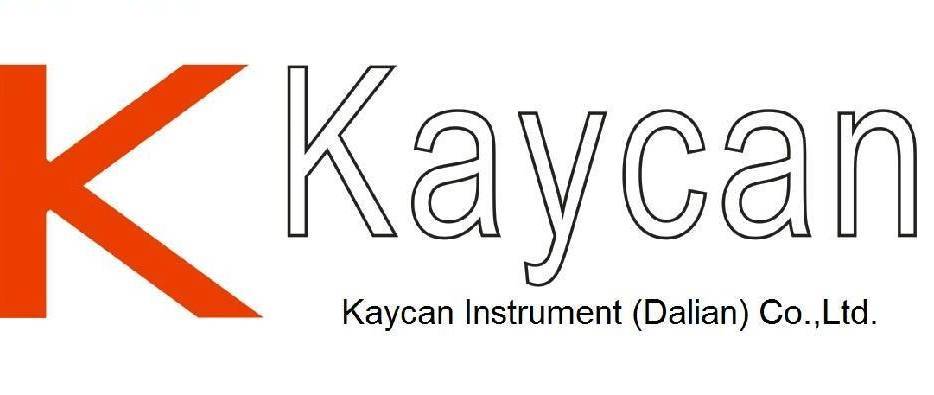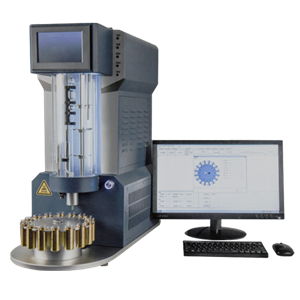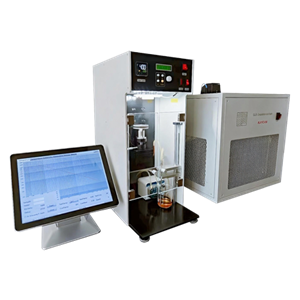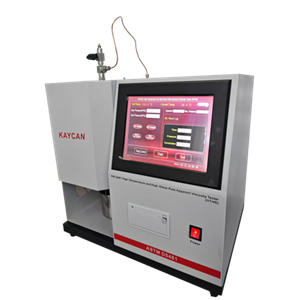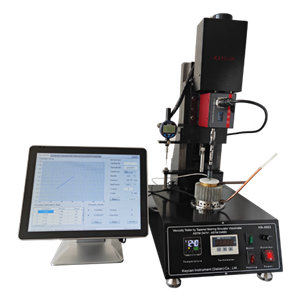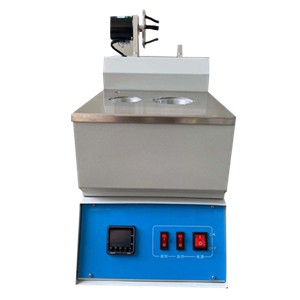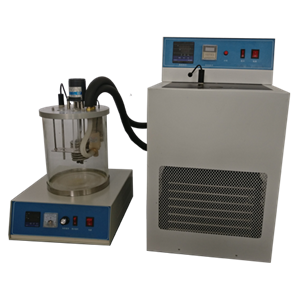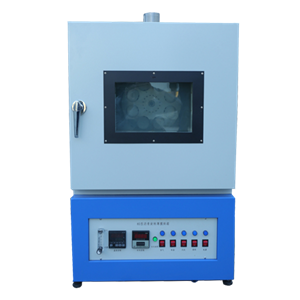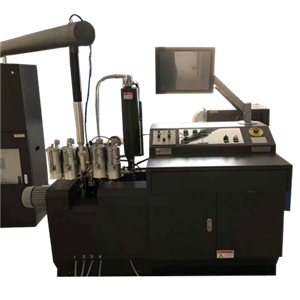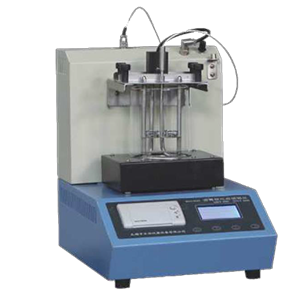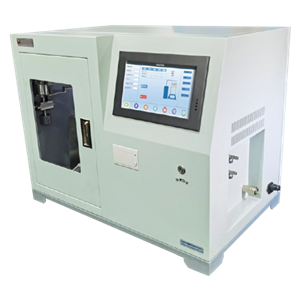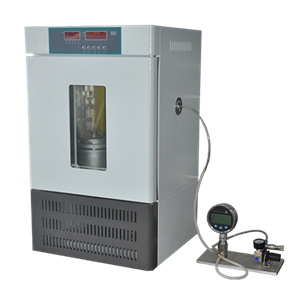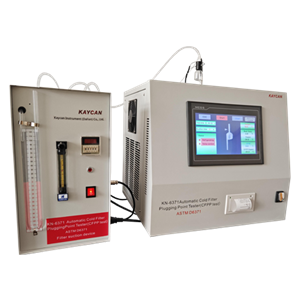-
ASTM D938 Congealing Point of Petroleum Waxes and Petrolatum
KN-938 Congealing Point of Petroleum Waxes and Petrolatum conforms to ASTM D938 Standard Test Method for Congealing Point of Petroleum Waxes, Including Petrolatum. Congealing point is a wax property that is of interest to many petroleum wax consumers. The procedure described here measures the temperature at which a sample being cooled develops a “set” or resistance to flow. At that temperature, the wax may be at or close to the solid state, or it may be semisolid and quite unctuous, depending on the composition of the wax or petrolatum being tested. In the case of petrolatums, congealing property is associated with the formation of a gel structure as the sample cools. A sample of wax is melted and a droplet is made to adhere to the bulb of a thermometer. Using a prewarmed flask as an air jacket, the droplet on the bulb is allowed to cool at a fixed rate until it congeals. The congealing point is observed as the temperature at which the droplet ceases to flow as the thermometer is turned.
Send Email Details -
ASTM D127 Petroleum Wax Drop Melting Point
Melting point is a wax property that is of interest to most wax consumers. It can be an indication of the performance properties of the wax. Drop melting point, Test Method D127, is often used to measure the melting characteristics of petrolatums and other high viscosity petroleum waxes
Send Email Details -
ASTM D2872 Rolling Thin Film Oven Test
this oven indicates approximate change in properties of asphalt during conventional hot-mixing ar about 150℃ as indicated by viscosity and other rheological measurements.it yields a residue which approximates the asphalt condition as incorporated in the pavement.if the mixing temperature differs appreciably from the 150℃ level. more or less effect on properties will occur. this oven also can be used to determine mass change,which is a measure of asphalt volatility
Send Email Details -
ASTM D2699 Octane And Cetane Test
Research O.N. correlates with commercial automotive spark-ignition engine antiknock performance under mild conditions of operation. Research O.N. is used by engine manufacturers, petroleum refiners and marketers, and in commerce as a primary specification measurement related to the matching of fuels and engines. Empirical correlations that permit calculation of automotive antiknock performance are based on the general equation:
Send Email Details -
ASTM D36 Automatic Bitumen Softening Point of Asphalt (Ring-and-Ball)
KN-36 Apparatus for Softening Point of Asphalt (Ring-and-Ball Test apparatus) conforms to the ASTM D36 Standard Test Method for Softening Point of Bitumen (Ring-and-Ball Apparatus). The apparatus covers the determination of the softening point of bitumen in the range from 30 to 160°C [86 to 320°F] using the ring-and-ball apparatus immersed in distilled water [30 to 80°C] or USP glycerin (above 80 to 160°C).
Send Email Details -
ASTM D6421 Apparatus for Electronic Port Fuel Injector Fouling by Bench Procedure
KN-6421 Apparatus for Electronic Port Fuel Injector Fouling by Bench Procedure conforms to ASTM D6421 Standard Test Method for Evaluating Automotive Spark-Ignition Engine Fuel for Electronic Port Fuel Injector Fouling by Bench Procedure. This test method covers a bench test procedure to evaluate the tendency of automotive spark-ignition engine fuel to foul electronic port fuel injectors (PFI). The test method utilizes a bench apparatus equipped with Bosch injectors specified for use in a 1985-1987 Chrysler 2.2-L turbocharged engine. This test method is based on a test procedure developed by the Coordinating Research Council (CRC) for prediction of the tendency of spark-ignition engine fuel to form deposits in the small metering clearances of injectors in a port fuel injection engine.
Send Email Details -
ASTM D1742 Oil Separation From Lubricating Grease
When a lubricating grease separates oil, the remaining composition increases in consistency. This can affect the ability of the product to function as designed
Send Email Details -
ASTM D6371 Automatic Cold Filter Plugging Point Tester(CFPP)
The CFPP of a fuel is suitable for estimating the lowest temperature at which a fuel will give trouble-free flow in certain fuel systems
Send Email Details
